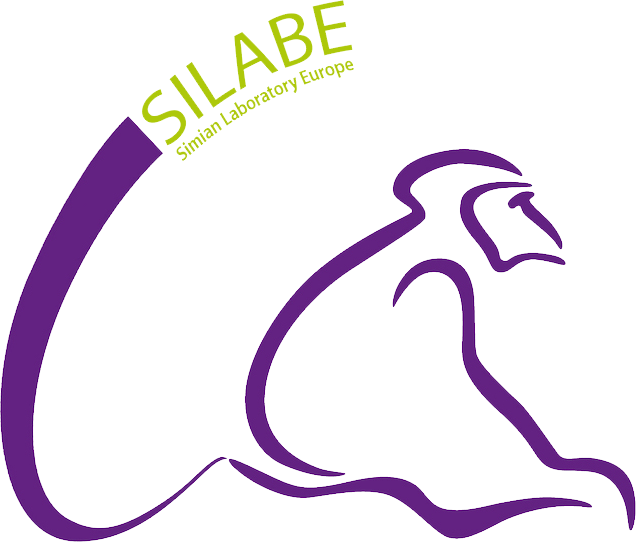Page contents
Short CV
- 2025 : Habilitation à Diriger des Recherches (HDR)
- Since 2023 : Permanent CNRS researcher
- 2021-2023 : Researcher at the Department of Ecology and Evolution, University of Lausanne, Switzerland
- 2021 : Postdoctoral researcher at the Inkawu Vervet Project, KwaZulu-Natal, South Africa
- 2020 : Associated researcher at the Eco-Anthropology lab, National Museum of Natural History, Paris, France
- 2017-2019 : Postdoctoral researcher (Fyssen fellow) at the Anthropological Institute and Museum of Zürich University ; the Department of Ecology and Evolution, University of Lausanne, Switzerland, and at the Inkawu Vervet Project, KwaZulu-Natal, South Africa : “On the origins of culture: the effect of social networks on social learning strategies in wild vervet monkeys”
- 2016 : PhD in Ecology-Ethology, University of Strasbourg, France : « On the tracks of Theory of Mind in monkeys : attention, perception and intention reading abilities »
Research projects
I am an ethologist studying primate social cognition with an emphasis on social learning, the 'second system of inheritance' at the origin of so-called cultural behaviours. My research aims to better understand the evolutionary roots of our cognitive, social and cultural capacities. More specifically, I study i) the social and cognitive components involved in the social learning of other primates, endowed with great social complexity ; ii) the bidirectional links governing social relations, social learning and communication ; and more generally iii) the cognitive and social denominators common to humans and non-human primates. The interest of my research lies in the comparative, observational and experimental study of several monkey species with different social systems, in captivity and in the wild. As primates are 'living links' to our past, studying them contribute to a better understanding of the evolutionary history of cognition and culture.
MacTolerance Project : Testing the social tolerance hypothesis for cultural evolution in primates
Humans are not the only cultural species as key examples of animal traditions have been described, notably in non-human primates. Among monkeys, numerous social conventions, extractive foraging techniques and manipulation behaviours, relying on social learning, have been reported. The complexity and cumulative nature of human culture is nonetheless unmatched in the animal kingdom, and the reason why is hotly debated. It has been suggested that social tolerance is a key element to social learning and that a lack of social tolerance can bottleneck social diffusion, and thus the emergence of traditions and cultures. With the ‘MacTolerance’ project, funded by the French National Research Agency (ANR), we aim to test for the ‘Social Tolerance Hypothesis’ by studying captive macaques belonging to four macaque species, each of a different social grade, from the more intolerant one to the more tolerant one. The objective is to conduct systematic comparisons, using similar tasks and data on all tolerance grade species. Our innovative approach will provide novel, cutting-edge knowledge and powerful modeling method to study social transmission.
ManyPrimates : Studying primate cognition on a large scale
I am part of the international collaborative network ManyPrimates since 2019, and particularly of the team behind the project aimed at testing inference by exclusion in many primate species.
Selection of main publication
Dongre P., Lanté G., Cantat M., Canteloup C., & van de Waal E. 2024. Role of immigrant males and muzzle contacts in the uptake of a novel food by wild vervet monkeys. eLife. DOI: 10.7554/eLife.76486.
Kerjean E., van de Waal E., & Canteloup C. 2024. Social dynamics of vervet monkeys are dependent upon group identity. iScience, 27(1), 108591. DOI: 10.1016/j.isci.2023.108591
Canteloup C., Cera M.B, Barrett B.J., & van de Waal E. 2021. Processing of novel food reveals payoff and rank-biased social learning in a wild primate. Scientific Reports, 11: 9550. DOI: 10.1038/s41598-021-88857-6.
Canteloup C., Hoppitt W., & van de Waal E. 2020. Wild primates copy higher-ranked individuals in a social diffusion experiment. Nature Communications, 11: 459. DOI: 10.1038/s41467-019-14209-8.
Canteloup C., & Meunier H. 2017. ‘Unwilling’ versus ‘unable’: Tonkean macaques’ understanding of human goal-directed actions. PeerJ, 5: e3227. DOI : 10.7717/peerj.3227.
Canteloup C., Piraux E., Poulin N., & Meunier H. 2016. Do Tonkean macaques (Macaca tonkeana) perceive what conspecifics do and do not see? PeerJ, e1693, 4: DOI: 10.7717/peerj.1693.
Canteloup C., Bovet D., & Meunier H. 2015. Intentional gestural communication and discrimination of human attentional states in rhesus macaques (Macaca mulatta). Animal Cognition, 18(4): 875-883. DOI: 10.1007/s10071-015-0856-2.
Canteloup C., Bovet D., & Meunier H. 2015. Do Tonkean macaques (Macaca tonkeana) tailor their gestural and visual signals to fit the attentional states of a human partner? Animal Cognition, 18(2): 451-461. DOI: 10.1007/s10071-014-0814-4.
Full list of publications : https://scholar.google.com/citations?user=tmd5g7MAAAAJ&hl=fr&oi=ao

